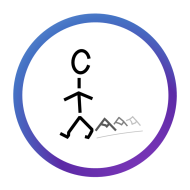December 2nd and I have a relationship. Now, I wouldn’t say it’s a great relationship. Then again, I wouldn’t say it’s a bad one. It’s just… noteworthy.
This is—or might be—the day that Saint John of the Cross was abducted. According to Kieran Kavanagh, translator of the complete works, “on the night of December 2, 1577, a group of Carmelites, laypeople, and men-at-arms broke into the chaplain’s quarters, seized Fray John, and took him away.”[1]
There is some disagreement or skepticism about the exact date. Kieran Kavanagh himself prepares a footnote to the letters of Saint Teresa of Avila saying that the abduction occurred on the 3rd (not the 2nd).[2] Saint Teresa Benedicta of the Cross (Edith Stein), claims, “on the night of December 3, 1577, several of the Calced with their accomplices broke into the living quarters of the nuns’ two confessors and took them away as captives.”[3] Sanjuanist scholar Iain Matthew much more vaguely and noncommittally says, “On a cold night in early December, his chaplaincy in Avila was raided. The young man was taken away for interrogation and chastisement.”[4]
For reasons that will become obvious, I prefer the earlier date. But we don’t exactly know.
In any case, John of the Cross was placed in solitary confinement for nine months, then escaped. Teresa of Avila describes the situation thus:
For all these nine months, he was held in a little prison cell where, small as he is, he could hardly fit. In all that time he was given no change of tunic, even though he had come close to the point of death. Only three days before his escape the subprior gave him one of his shirts. He underwent harsh scourges, and no one was allowed to see him. (Letter 260)[5]
In his captivity, John composed the poem The Spiritual Canticle—the popularity and importance of which can be perhaps judged by the fact that John’s own commentary on this poem is far and away the most quoted non-biblical document in the complete works of Saint Thérèse of Lisieux. The escape from imprisonment itself is very hard to disassociate from the Dark Night as a poem, and thus the Ascent of Mount Carmel and the Dark Night as prose works. In other words, virtually everything we know about John of the Cross and nearly everything that makes him the Mystical Doctor of the Church originates in this prolonged period of clerical abuse.
Almost everything the modern world knows about Christian contemplation was conditioned by clerical abuse. Or put another way, the diffusion of contemplative prayer in the modern world was one of God’s counterattacks to abusers and a culture of abuse.
Today is also the tenth anniversary of the day that I was given an order by a priest that changed my life. I wasn’t forcibly abducted, and I wasn’t put in solitary confinement, and what they got away with lasted only a third of the time as John’s ordeal—but what kinds of nonstop psychological torture these priests were able to concoct and enact is just as shameful. Shameful for them, of course. I don’t mean that I should be ashamed of their psychopathy.
December 2nd—you and I, John and you, you and the powerful force of contemplative prayer in the modern and postmodern world… the relationship is complicated. Do I hate all this evil? Yes, absolutely. Do I want it removed from the past? Ah, the words of the third of the main poems and fourth of the prose works of John of the Cross is the answer I have:
For you, O divine life, never kill unless to give life, never wound unless to heal. When you chastise, your touch is gentle, but it is enough to destroy the world. When you give delight you rest very firmly, and thus the delight of your sweetness is immeasurable. You have wounded me in order to cure me, O divine hand. (Living Flame of Love 2.16)[6]
December 2nd, December 2nd—“O sweet cautery, / O delightful wound!”[7] The depths are lower, yet the heights are higher. This is the day the devil lost.
[1] The Collected Works of St. John of the Cross, 3rd ed., trans. Kieran Kavanaugh and Otilio Rodriguez (Washington, DC: ICS Publications, 2017), 18.
[2] The Collected Letters of St. Teresa of Avila, vol. 2, trans. Kieran Kavanagh (Washington, DC: ICS Publications, 2007), 107n1.
[3] Edith Stein, The Science of the Cross, trans. Josephine Koeppel (Washington, DC: ICS Publications, 2002), 27.
[4] Iain Matthew, The Impact of God: Soundings from St. John of the Cross (London: Hodder and Stoughton, 1995), 9.
[5] The Collected Letters of St. Teresa of Avila, vol. 2, 107.
[6] The Collected Works of St. John of the Cross, 663.
[7] Ibid., 52.

